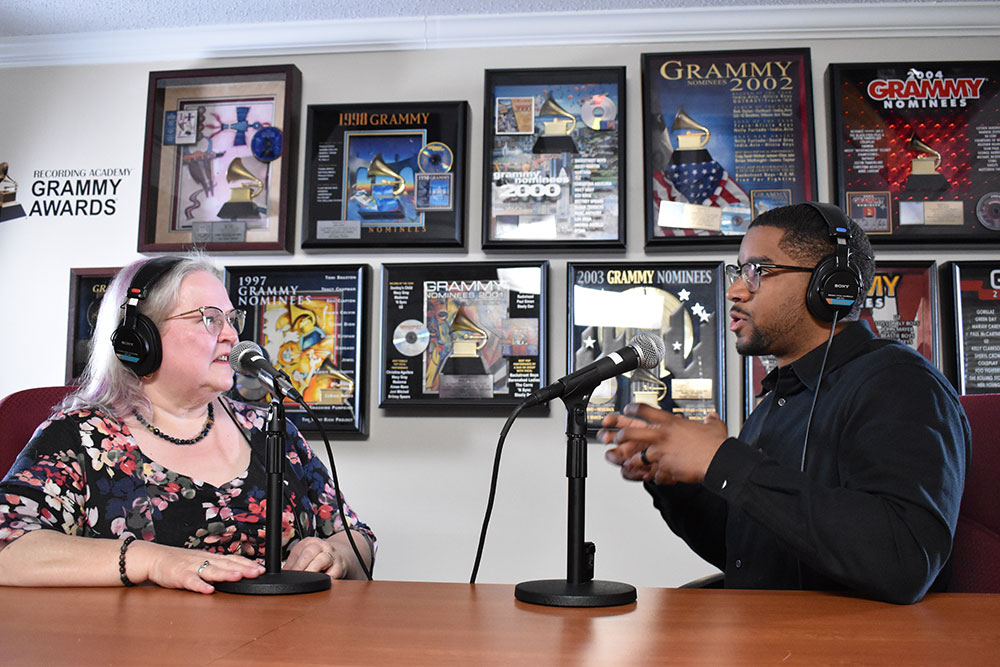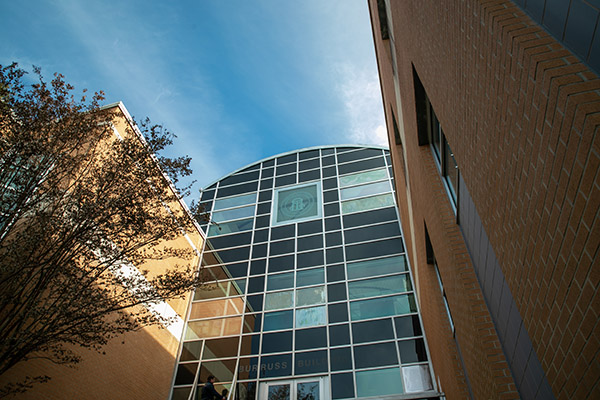
KSU Economist: Continued Growth In 2016
KENNESAW, Ga. | Jan 14, 2016

Kennesaw State University economics professor Roger Tutterow says the economy continues to recover from the 2008-09 recession and happily, he does not expect a downturn this year.
Speaking at Bank of North Georgia’s annual economic forecast breakfast at the Cobb Energy Performing Arts Centre on Wednesday, Tutterow said he’s been asked lately whether he thinks another recession is on the horizon.
“Certainly if you look at economic history since World War II, and you look at the average length of an economic expansion, it averages about 58 months. … The argument I make though is that economic recessions do not occur because they’re old. Expansions do not die of old age. … So when we look at the fact that we are six and a half years in, that by itself does not mean that we are due for a recession in 2016,” Tutterow said.
Tutterow said the recession of 2008-09 is the worst economic downturn since the Great Depression based on certain factors such as output production and income. Additionally, the recovery from this recession has been atypical in that strong growth usually follows an economic downturn. This recovery is more “timid,” Tutterow said.
“When I look at the numbers, I understand it was not just the depths of the Great Recession, but the timidity of the recovery that has drawn us out six and a half years without things feeling truly normal in every part of the economy,” he said.
Meanwhile, factors such as the dollar becoming stronger compared to other currencies “slowed the economy early last year and continue to serve as an albatross and a risk to our economic outlook,” Tutterow said.
“One of the reasons that I remain cautious about the pace of economic growth in 2016 is while it is unlikely the dollar will rally further against major trading partners, I do at the same time expect China will put downward pressure on their currency in an effort to jump-start their economy,” Tutterow said. “Therefore, we have to be cautious about how much of our economic growth we believe we can contribute to exports in 2016.”
Another factor that may have contributed to 2015’s sluggish economic growth is low domestic oil prices, Tutterow said. Low gas prices are good news for Georgia, but it also restricts growth of the nationwide energy sector.
“The long and short of it is as those oil prices have come down, the previously high-flying parts of our national economy have softened,” he said. “The offset is this: while those low oil prices are bad news in Texas and Oklahoma and the Dakotas, they are very good news in Georgia and they are spectacularly good news in metropolitan Atlanta, including Cobb County.”
While these factors might be restraining overall economic growth, it is also leading to a phenomenon Tutterow called “re-shoring,” where companies bring jobs previously shipped overseas back to the U.S.
“Modern manufacturing is increasingly capital intensive and it’s increasingly energy intensive,” he said. “So to the degree to which the private sector believes that we as a country have made inroads toward getting access to uninterrupted, affordable energy, that supports the relocation of production to our country.”
Explaining another reason why more jobs may be returning to American shores, Tutterow cited an economic concept called the factor price equalization theory, which states that free trade tends to cause the cost of production, including wages, to level out among countries over time.
“It’s not surprising that after two decades of increased trade with Asia that Asian wages have been rising in the high single digits at a time when (wages) have been essentially sideways in the U.S.,” Tutterow said.
As a result, companies are looking at more than just labor cost but the entire cost of production when considering whether their products should be manufactured at home or abroad.
“They are now saying that the differential in labor cost does not justify other locational advantages to being in the U.S. When I look at direct access to the largest middle class in the world, one of the two largest middle classes in the world, I look at the … supply chain, I look at rule of law (and) respect for contracts — all things that support bringing production back to the U.S. — then I understand why we’re starting to see economic development wins again nationwide and here in the state of Georgia.”
Tutterow said as the difference between foreign and domestic labor costs has decreased, Georgia has seen more foreign investment come to the state and companies nationwide have begun a re-shoring of production that had moved to China years ago, particularly in the chemical and textile industries.
Ansel Postell, one of the principals of Avondale Estates-based Robinson’s Chauffeured Transportation, attended Wednesday’s event as a guest of the bank. Postell said Tutterow’s speech was very helpful when planning his company’s year ahead.
“As a small business owner, it allows me to look at the opportunity for today and over the next five years. It’s going to be a good map to understand spending as well as hiring,” Postell said.
Postell also said the event helps him identify new opportunities for investment, such as Cobb County’s growing senior population: Tutterow highlighted senior living developments as one aspect of the residential housing market that is expected to continue to grow as the baby boomer generation continues to move into retirement.
“I like the senior market because it’s a long market that shows us that there’s a trend: they’re living longer. As far as the business aspect on the transportation side, one thing I see for us: Those seniors are traveling also with budgets that are exceeding mine and yours,” Postell said. “That’s allowing us to see an opportunity for travel.”
Related Posts

Gathering Spot CEO Ryan Wilson on Building a Social Club to Inspire Connections.

Kennesaw State MBA student leveraging degree work for a cause

CEO Magazine Ranks Kennesaw State Executive MBA Top Program in Georgia, No. 11 in the World

LexisNexis marketing director on the importance of remembering people when developing a marketing strategy














